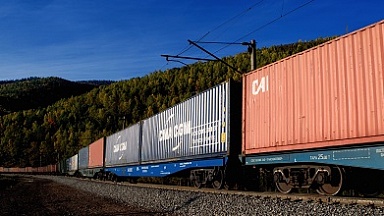Due to the severe backlog at the Alashankou and Khorgos border points, all kinds of goods transport through these points is suspended, with the exception of China-Europe Express and China-Central Asian Express, the announcement reads. In case of essential goods, companies should contact China Railway Group in order to apply for capacity at the border. In addition, alternative border points have been set up for the passage of trucks between China and Kazakhstan.
Additional inspectionsThe congestion is reported to result from additional inspections at the border, as there is a second wave of coronavirus infections in China. The new strain of the coronavirus was found on cutting boards for imported salmon at Xinfadi market in Beijing. The fear is that the virus was imported via cargo from abroad.
The continuance of rail freight traffic between China and Europe, and China and Central Asia is however of great importance to the Chinese government. After a disturbance of the market early this year, when Chinese manufacturing companies shut down en masse, it said to support New Silk Road traffic in all possible means.





